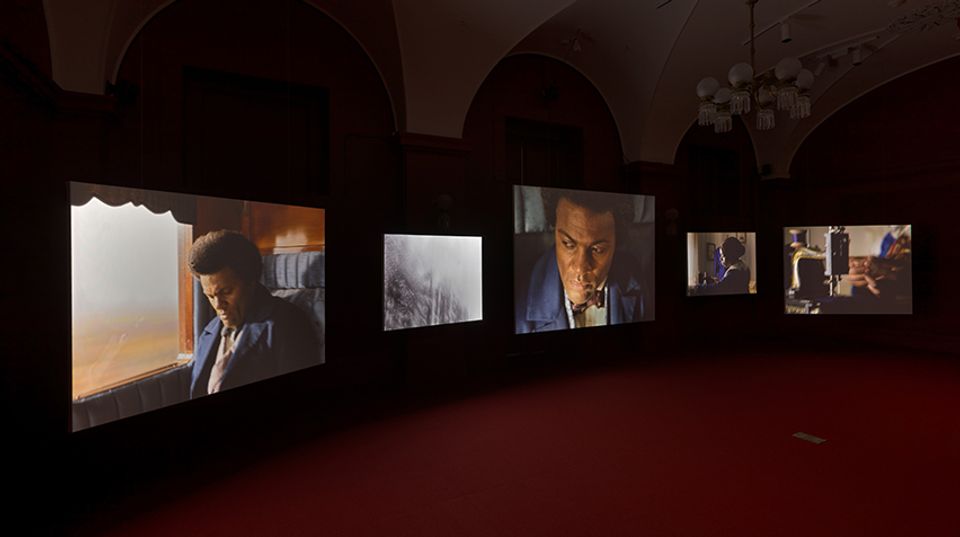

Robert Motherwell, known as an intellectual painter, has sometimes been called the spokesperson for the abstract expressionist movement. He painted in a style that often involved spontaneously generated images on large fields of canvas. Fifty years ago, in 1959, he created Monster (for Charles Ives). It has a white circle slightly off center that looks like a porthole on a ship looking into fog.
As the title suggests, a hulking animal, made up of brown brushwork on a dirty white ground, looms. The composition is reminiscent of Motherwell's previous interpretations of Francisco Goya’s The Dog. At the time of the painting, Motherwell was listening to a festival of music by avant-garde composer Charles Ives on radio station WBAI in New York. Motherwell remarked that his painting expressed the difficulties faced by the American artist. “I dedicated the painting to Ives, for the title refers to the monstrous ambiguity of the modernist artist’s situation, which Ives no less (and no more) epitomizes than other deeply serious composers, poet, playwrights, painters and sculptors in the U.S.A. in the twentieth century."
Motherwell was perhaps the most "political" of the abstract expressionists and did not shy away from social commentary. His painting series "Elegies to the Spanish Republic" delves into the Spanish Civil War (1936–1939). (See paintings from this series in the Metropolitan, the MoMA, and the Guggenheim.) I admire Motherwell for not turning away from war and other miseries, and for showing us the light that emerges out of darkness. "Monsters occur more often in my work than may be supposed," Motherwell said as well. That quote has made me take a closer, deeper look at Motherwell's work, in case I may have missed something.
Not all monsters are the kind lurking under the stairs. Some are right in front of you. The trick is to find them before they find you.
Check out more artworks in our collection by Robert Motherwell and explore our online exhibition Modernism and Abstraction for a survey of other artists. You can find related books in our online shop: Modernism and Abstraction: Treasures from the Smithsonian American Art Museum and Modern Masters: American Abstraction at Midcentury.

















